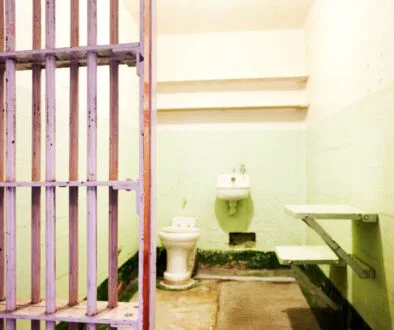How to Reduce a Shoplifting Fine

Published July 25, 2021
While shoplifting incidents are relatively common, this does not mean they are not taken seriously. Every state’s penal (criminal) code contains rules relating to shoplifting (often grouped under the umbrella of theft or larceny statutes). Moreover, the shoplifting fine can be severe—especially when the product is expensive or the perpetrator has an existing criminal record.
This article discusses shoplifting in general, the types of acts that constitute shoplifting, how shoplifting is prosecuted, and when shoplifters can be sued under civil liability laws.
Understanding What Shoplifting Is
Usually, shoplifting is described as the act of taking items from a retailer without paying for them. However, successfully evading payment for products is not the only way of committing a shoplifting crime. In some instances, the plan to steal combined with an act to pursue that desire may result in criminal charges for stealing or retail fraud. A shoplifting-related action could involve the following:
- price tag altering
- removing (or even attempting to remove) anti-theft devices or security tags
- concealing or hiding an item inside you while still in the store –– hiding things in your pocket or purse
- removing an item from its packaging and keeping it in or among other products
Factors That Affects A Shoplifting Case
- Age
Your age can significantly affect your case. The judge can be more merciful to you if you’re younger.
- Prior Convictions
Your criminal history will also affect the decision of the judge. If you have prior convictions, the chances are high that even a plea bargain deal won’t be offered to you.
- The Item You Stole
The item that you stole can also interfere with the judge’s decision. In this instance, the judge might be more lenient if you were caught stealing food for your baby than taking cosmetics or anything just for fun.
- The Value Of The Stolen Item
Your case may be treated differently depending on the value of the object that you stole. For instance, a $30 item has lower charges than stealing $500 worth of an item.
How Shoplifting Is Prosecuted and Penalized
In many places, shoplifting is prosecuted and penalized as a theft or larceny offense—typically as petty or misdemeanor theft, if the value of the item stolen, is less than a specified amount (for instance, $200). Other states distinguish between shoplifting and general theft for charging and sentencing purposes, and some penalize shoplifting less severely than other theft charges.
In Massachusetts, for example, a first or second offense of shoplifting items valued under $250 involves a monetary punishment only. However, the lowest category of larceny (theft) carries a maximum sentence of one year in prison for taking the same amount. (Massachusetts General Laws ch. 266, sections 30, 30A (2020).)
As the monetary worth of the stolen items increases, the severity of the criminal charge that will come from a shoplifting offense increases accordingly. Penalties may begin as infractions and progress to misdemeanors or felonies in some states. Each state utilizes a separate set of criteria (monetary values) to categorize offenses.
Defining Shoplifting “Sprees” and Retail Theft Rings
In many places, a person caught with shoplifting will be charged with a more serious crime (and/or face heavier penalties) if there is evidence that the conduct was part of a shoplifting “spree” or systematic sequence of thefts from retail outlets. These schemes are referred to in some states as “retail theft rings” or “organized retail theft,” mainly when they involve the illegal resale of stolen products. Generally, these are felonies.
Shoplifting Civil Liability
Along with any criminal penalties associated with stealing, each state has a civil law that allows someone who commits shoplifting to be held civilly liable to the store owner (or the owner of the product) for monetary damages resulting from the incident.
Additionally, in almost every state, the parents or legal guardians of minors who shoplift may be liable for monetary damages (although a few jurisdictions require that parents or guardians know or should have been aware of the minors’ tendency toward stealing). When parents or legal guardians are liable for damages, some states reduce the amount of the penalty that parents or minors must pay (compared to adult shoplifters). Certain states absolve foster parents of obligation.

ADVERTISEMENT
What is the difference between Criminal and Civil courts?
Generally, a government prosecutor charges a suspect with a crime. The proceedings take place in a criminal court, and the punishments may include jail, fines, or a combination of the two. Generally, criminal defendants who cannot afford an attorney have a right to a public defender (or court-appointed attorney). Theft, assault, burglary, and murder are all examples of criminal charges.
In civil court, a dispute between two private parties is litigated. The party who has been wronged (plaintiff) files a lawsuit against the party who is alleged to be at fault (defendant). Moreover, there is no right to a public defender or court-appointed attorney. If the defendant loses the case, the successful party is typically awarded monetary damages. Civil court cases include claims for medical malpractice, breach of contract, and personal harm.
Numerous civil shoplifting laws require the store owner to issue a formal demand for payment prior to filing a civil complaint. Additionally, in most jurisdictions, a civil lawsuit may be pursued regardless of whether criminal charges are filed in connection with the shoplifting event.
While each state’s civil shoplifting law is unique, common financial liability for shoplifting includes the payment or repayment of the following:
- the total retail value of the item stolen (if it is not in a sellable condition when returned)
- the store owner’s other financial losses as a result of the theft
- an additional civil penalty, typically based on a formula that includes the value of the product stolen, and
- repayment of the store or product owner’s expenses (court and attorney fees)
Ways to Get Shoplifting Charges Dropped
Developing a shoplifting defense strategy is critical to obtaining a dismissal or reduction of your charge. The defenses that you may choose to assert will vary according to the facts of your case. However, some of the more prevalent defenses include the following:
- The investigation and evidence presented are unreliable
- One’s knowledge and mental state
- Identity is mistaken for someone else
- You were present when the crime happened, but you didn’t do it
- Constitutional legal challenges, like Miranda Violations
- Value of the stolen item
- Diversion agreements
- Misdemeanor compromise
It’s a fact that you can pay a shoplifting fine to get your ticket off of your criminal record. But, getting rid of it is much higher than pleading guilty and paying a fine.
However, a shoplifting conviction can’t be expunged from your criminal record. If you have a prior conviction, most likely, you will find it hard to get a decent job in the future. Even applying for a scholarship for your college might get you rejected.
The best thing to do is find a criminal defense lawyer that can help you lower your charges or totally dismiss your case. In some cases, a good lawyer will do all the work for you without you having to appear in court.
Reduce Your Jail Call Costs By Up To 90% Per Minute With GlobalTel
GlobalTel’s inmate calling service lowers jail call per minute rates by up to 90% for jail calls from US facilities. Sign up now and use the special jail call phone number we create for you to eliminate the long distance jail call fees. Try GlobalTel for only $45.99 for 90 days. Make US/domestic and international jail calls at the local rate and stay connected to your incarcerated loved ones for less. Learn more about how to sign up for calls from inmates here.

This Content Is Fact Checked
Our esteemed team of specialists has thoroughly validated the accuracy of this information. Discover further details about the rigorous editorial guidelines for our website here.
ADVERTISEMENT

About The Author
Krizzia Paolyn is an SEO Specialist with a bachelor’s degree in Psychology. It has always been her passion to share her voice, and at the same time, to encourage other people to speak up.




